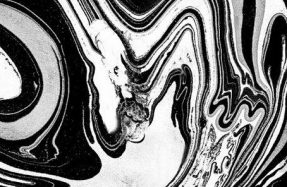Remember Reading in Public?

“I’ve always had a daydream of being a lighthouse keeper, absolutely alone, with no one to interrupt my reading or just sitting,” Elizabeth Bishop wrote to Robert Lowell. “Alone, I cannot be—,” Emily Dickinson lamented of things physical and metaphysical, “For Hosts—do visit me—.” Whether distant lighthouse or private room, the comfortable melancholy of solitude is a pleasant thought. Literature, for many, is best created or read alone.
Yet most of us do not have isolated, private rooms for creation and contemplation. We live and work among families and friends, blessed and beset by constant action. The pandemic has closed those spaces even further: sealed us in a seemingly perpetual quarantine. These months have made me long for the reading that happens in public spaces: the magic of shared silence through books.
The quiet, communal experience of public reading is nearly sacral; the private self made public. The act of reading has a whisper of the monastic—the world before the printing press, when hand-copied texts were shared and savored. This is a romantic conception of the reading act because most readers are romantics at heart: people who believe in the songs made by poems and stories.
I know that much of my lament for reading in public spaces is tied to the recent narrow routes of our lives—narrow for good reason—but I have always associated places with books. I love to read at the train station, on the train, at a park, or even in my car, waiting to pick up my wife and daughters. The mind and heart are paused by that action of waiting, and reading fills that space well.
Of all places, I most miss reading at libraries. Libraries offer access to so much knowledge, but we should never think of them as transactional spaces. Libraries are places where we can share our love for the art of books. I first learned to love reading in public at the Whippanong Library, my childhood library. I walked between its dimly-lit yellow stacks, and tried books for a few pages at a time (my elementary school librarian had gently warned us of the two cardinal browsing sins: breaking a book’s spine, and returning a book to the wrong spot).
There will be a time when we can get back to reading in public spaces with our past freedom. We might take a book of poems to a diner booth, or a book of essays to a café.
There I first read The Book of the Damned by Charles Fort. “The fate of all explanation is to close one door only to have another fly open,” Fort noted, cultivating my sense of wonder. I sat on a step stool in the near-dark, and felt like I had discovered some banned text that I did not fully understand. I read about dead, dry fish that fell from the sky in India, spiderless cobwebs that draped Wisconsin towns, and showers of blood in Italy.
After I exhausted all of the paranormal titles at that small library, my eternally patient mother brought me to the Morris County Library, where she showed me how to use microfilm. She would read about her own childhood in Newark, and I would seek all things Fortean in old newspapers: mythological creatures roaming in villages, vanishing people, strange weather. Then, armed with a list of call numbers, I grabbed as many books as I could hold, and spread them on the long tables in the reference section. Around me, graduate students from the local divinity school pored over copies of the synoptic Gospels and local historians examined old maps. To be at the library meant to be surrounded by those steeped in learning: a public communion of thought.
Years later, I would read the collected plays and stories of W.B. Yeats at the Morristown Library—not quite the land The Celtic Twilight, but an old building perfect for quiet reading. I read Dog Soldiers by Robert Stone—quickly, fervently, with the envious desire to create fiction of my own—in one of the upstairs study rooms at the Susquehanna University Library. I studied the pointed prose and mystical insights of James Baldwin in The Devil Finds Work at the Newark Public Library, and then down the street at the Dana Library at Rutgers-Newark, read Lost in the City by Edward P. Jones. It is a gift to be among others, and yet lost within ourselves.
These memories feel simultaneously blurred and sharpened by the pandemic. For now, they are a past life of reading. There will be a time when we can get back to reading in public spaces with our past freedom. We might take a book of poems to a diner booth, or a book of essays to a café. We might linger in a used bookstore, surprised anew by a writer that we’ve loved for years. Or we might go to a library, take out more books than we ever have time to actually read, and sit down with them first before leaving—as if we can’t wait to experience the riches. To read in public is a blessing: at those moments, we’ve all chosen to slow down and settle into a world of words.






